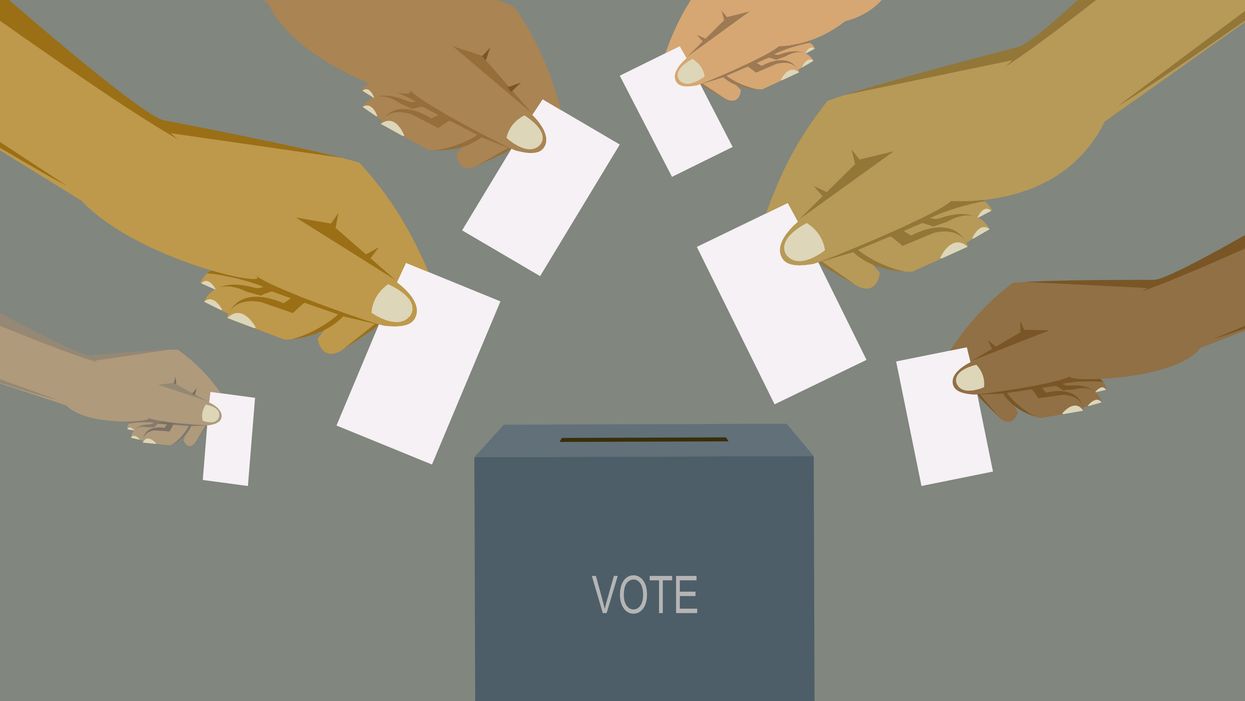Manipulating district lines is just one way politicians stay in power. Another is by making it harder for the electorate to vote them out. A new report by a liberal think tank concludes that partisan gerrymandered legislatures have led to more voting restrictions — "a power grab on top of a power grab."
The Center for American Progress study, released Wednesday, found that Republicans in four states used map-guaranteed statehouse majorities to enact voting restriction (such as photo ID laws) and block easements to the ballot box (like longer early voting periods) — efforts that have proven particularly burdensome for communities of color, which usually vote Democratic.
The report is the fourth and final in a series designed to show why the cause of redistricting reform — turning district map drawing over to independent commissions — should be more of a priority for the left. The first, in December, blamed partisan gerrymandering for an absence of new gun controls this decade. The others cited the system for limiting Medicaid expansions and curtailing government spending on child care and education.
"If majorities of voters cannot elect majorities of legislators, that is a failure of democracy," said Alex Tausanovitch, co-author of the new report. "If those ill-gotten majorities then use their power to disenfranchise voters, that is a democratic downward spiral."
The report focuses on election law in four big purple states where Republicans drew the maps in 2011 and have controlled the state capitals ever since — even now, dispite the fact that in all of them Democratic candidates won the aggregate statewide legislative vote in the 2018 midterms: North Carolina, Michigan, Pennsylvania and Wisconsin.
In Raleigh, for instance, Democratic lawmakers advocated for a bill last year that would have provided free IDs to North Carolinians, implemented automatic and same-day voter registration, and expanded online registration and early voting. But since Republicans held the majority in the Legislature, the bill did not pass.
CAP's report states that if North Carolina had legislative districts that fairly reflected the state's partisan makeup, Democrats would have controlled the Legislature and "been able to implement positive reforms expanding voting access."
Wisconsin's confused and coronavirus-tainted primary in April is another example that CAP points to. Had the statehouse in Madison been under Democratic control, the study concluded, the state would have enacted laws either postponing the election or making it much easier to vote by mail because of the Covid-19 pandemic — all efforts that were blocked by the GOP.
Putting nonpartisan commissions of regular citizens in charge of mapmaking is widely regarded as the best solution to combating gerrymandering. "Taking the power to draw districts away from incumbent politicians is the first step toward any serious reform," CAP's report concludes.
In 2018, Michigan voters approved a ballot measure to create a nonpartisan redistricting commission, which will be established in time for this decade's redistricting following the results of the census. Last year, North Carolina's districts were redrawn after a panel of judges ruled the previous maps violated the state Constitution's "free elections" clause. A similar situation played out in Pennsylvania two years ago when the state's highest court rejected the legislative maps. And in Wisconsin, the push for redistricting reform remains ongoing.
Next year, following the census, 14 states will use independent commissions to draw state legislative districts, and eight will do so for congressional districts. Virginians will vote in November on whether to join this group of states, whereas Missourians will vote on whether to undo a reform initiative they approved two years ago.
Campaigns for redistricting reform are ongoing in Oregon and Nevada, and anti-gerrymandering advocates in Arkansas and North Dakota are awaiting official approval for their ballot petitions.




















Trump & Hegseth gave Mark Kelly a huge 2028 gift